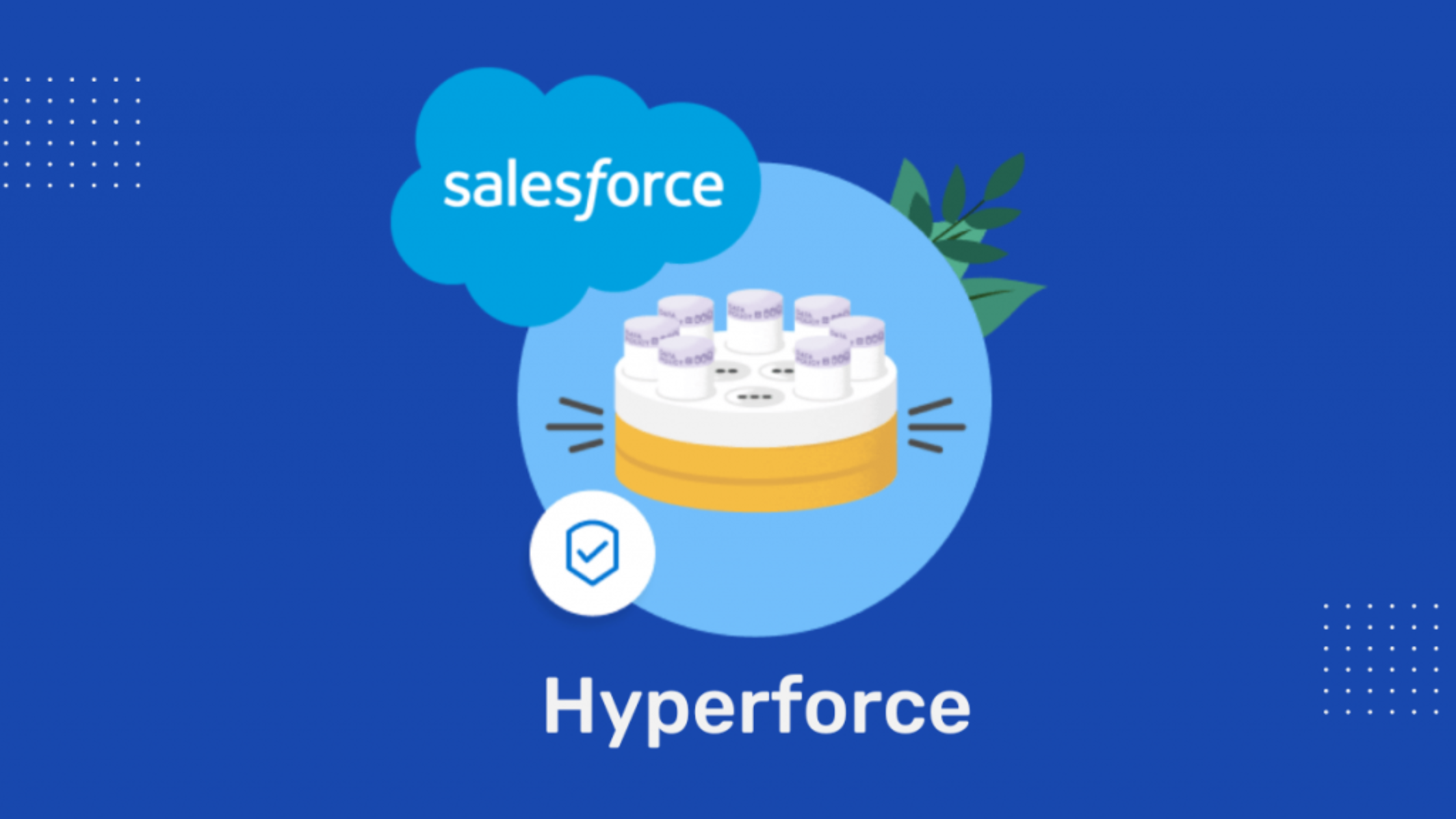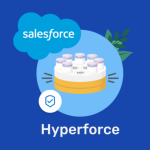Hyperforce is Salesforce’s innovative cloud infrastructure designed to address scalability, security, and flexibility across the globe. It enables Salesforce to deploy its services with enhanced performance and customization tailored to meet local regulations. With this architecture, organizations can seamlessly scale their CRM solutions without compromising on data security or compliance. This post will explore how Hyperforce is reshaping Salesforce CRM, and why it’s essential for businesses seeking agility in an increasingly complex technological landscape.
Salesforce CRM with Hyperforce Architecture
As we step into the future of Customer Relationship Management (CRM), one technology is setting the stage for massive changes: Salesforce’s Hyperforce architecture. A game-changer for businesses worldwide, Hyperforce offers a new foundation for Salesforce’s CRM platform that can handle global scale and localization like never before. Imagine having a CRM system that not only offers cutting-edge features but also adapts effortlessly to meet local laws, compliance, and performance expectations.
In this blog, we’ll dive deep into what Hyperforce is, its key features, and why it’s poised to redefine Salesforce CRM’s future. If you’re wondering how this cloud infrastructure can impact your CRM systems, you’re in the right place. So, let’s explore how Hyperforce is setting the stage for an evolved, global Salesforce experience!
What is Hyperforce Architecture?
Hyperforce is Salesforce’s advanced cloud architecture that promises greater scalability, flexibility, and security for its CRM platform. Unlike traditional cloud solutions, Hyperforce can deploy Salesforce’s services in various regions while ensuring compliance with local data laws and regulations. It allows Salesforce to leverage the power of cloud computing while offering more customization options for businesses.
The architecture is designed to be agile, efficient, and capable of delivering superior performance globally. It also optimizes security and disaster recovery measures, providing businesses with greater reliability and confidence in their CRM systems.
Key Benefits of Hyperforce for Salesforce CRM
Global Scalability
With Hyperforce, Salesforce can now deploy its services on a global scale, providing businesses with the flexibility to expand their operations to new markets. The architecture is designed to handle large volumes of data and ensure smooth performance, even as organizations grow and scale across different regions.
Enhanced Data Security and Compliance
Security is a top priority for Salesforce, and Hyperforce takes it to the next level. With features like data residency and region-specific data storage, businesses can comply with local data privacy laws while maintaining the security of their CRM data. This is especially important for industries with stringent compliance requirements.
Improved Performance and Efficiency
Hyperforce enables Salesforce to leverage cloud computing to its fullest potential, resulting in improved performance. Faster data processing and optimized infrastructure ensure that users experience minimal latency and maximum uptime. This means businesses can rely on Salesforce CRM to run smoothly, even during peak times.
Localization and Customization
One of the standout features of Hyperforce is its ability to meet the specific needs of different regions. This level of localization ensures that Salesforce services can be tailored to comply with various regional laws, language preferences, and cultural differences. Organizations can also customize their Salesforce instances based on local requirements, improving user adoption and satisfaction.
Streamlined Disaster Recovery
enhances Salesforce’s disaster recovery capabilities, allowing businesses to recover from potential disruptions quickly. With multiple data centers in various regions, Salesforce can ensure data availability even in the event of natural disasters or system failures, making it a reliable choice for businesses that require continuous service availability.
How Hyperforce Supports Salesforce’s Evolving CRM Strategy
Salesforce’s vision for CRM has always been centered on helping organizations build stronger customer relationships through automation, AI, and data-driven insights. With Hyperforce, Salesforce can take this vision further by offering a CRM solution that is not only powerful but also agile and adaptive.
By combining Salesforce’s AI capabilities with Hyperforce’s scalable architecture, businesses can gain deeper insights into customer behavior, improve lead generation, and offer personalized customer experiences. This makes Salesforce CRM not just a tool for managing customer relationships but a strategic asset that can drive business growth and innovation.
How Hyperforce Enhances Salesforce Features
Sales Cloud:
Sales teams can now access faster, more reliable data across multiple regions, improving their ability to close deals faster and manage customer interactions more effectively.
Service Cloud:
Hyperforce ensures that customer support teams can deliver a seamless service experience by providing faster access to case data and real-time communication tools.
Marketing Cloud:
With faster processing speeds and the ability to scale to global markets, marketers can run more personalized campaigns and reach their audiences with precision.
Commerce Cloud:
Hyperforce enables e-commerce platforms to handle large traffic spikes with ease, ensuring customers have a smooth shopping experience, even during peak seasons.
Real-World Examples of Hyperforce in Action
Let’s take a look at a couple of businesses leveraging Hyperforce’s capabilities to boost their CRM effectiveness:
Global Tech Company:
A global tech giant was able to expand its CRM services to new international markets while ensuring compliance with local data privacy laws. Hyperforce allowed them to deploy Salesforce in multiple regions seamlessly, ensuring consistent customer experiences across borders.
Financial Institution:
A leading financial services provider used Hyperforce to enhance data security and streamline their operations across different geographies. With the new architecture, they improved their disaster recovery processes, ensuring business continuity in the face of potential disruptions.
Challenges and Considerations
Despite the many benefits, adopting Hyperforce may come with some challenges. For one, businesses need to ensure they have the right infrastructure in place to fully leverage its capabilities. Additionally, implementing new technologies often requires retraining employees and adapting internal processes, which can take time and resources.
However, with the right approach, businesses can overcome these challenges and reap the benefits of Hyperforce’s enhanced performance, security, and scalability.
FAQs
What is Hyperforce?
Hyperforce is Salesforce’s next-generation cloud architecture designed to provide enhanced scalability, security, and compliance while offering global deployment capabilities.
How does Hyperforce improve data security?
Hyperforce ensures data residency and region-specific data storage, helping businesses comply with local privacy regulations and enhancing data security.
Can Hyperforce benefit small businesses?
Yes, small businesses can benefit from Hyperforce’s scalability and improved performance, enabling them to grow without worrying about infrastructure limitations.
Is Hyperforce available globally?
Yes, Hyperforce enables Salesforce to deploy services globally, allowing businesses to operate in multiple regions with localized solutions.
Conclusion
Hyperforce is set to revolutionize the way Salesforce CRM is used by businesses worldwide. By providing a scalable, secure, and customizable architecture, it ensures that Salesforce can continue to meet the growing needs of businesses in an increasingly complex digital landscape.
At TTC Group, we understand the importance of staying ahead of the curve, and with Salesforce’s Hyperforce, your business can unlock new levels of CRM success.









